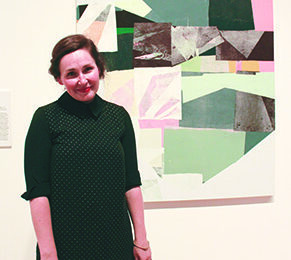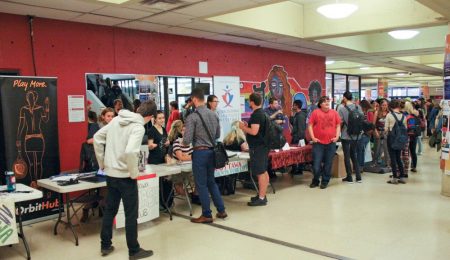Festival moves to pay-to-play contest with little notice
ELE Fest, a music festival with strong ties to the Student Federation of the University of Ottawa, might be hitting big this year with its headliners, but the festival is mired in problems on the local level.
When the local performers application opened, it seemed rather standard, asking for past gigs, estimated crowd size, albums and digital content, among other factors.
“It was a pretty standard application, something you’d see similar to Bluesfest,” said Matt Radich, a fourth-year information management systems student who performs music under the stagename Townes.
Radich applied, but got a surprise a few days later when he received an email from festival organizers saying that the original merit-based application was to be replaced with a pay-to-play contest.
“They wanted you to sell tickets to your friends for the opportunity of you possibly playing, which is super shady,” Radich said. “I wasn’t really expecting this from a university-run event.”
Pay-to-play events do occur, but the price of a ticket isn’t usually $100—the price of a three-day pass to ELE Fest—which makes it hard to sell tickets to friends.
“This was ‘sell tickets to our three-day festival that costs $100,’” Radich said, “I have to sell these tickets for the possibility of playing. I can’t even sell the single-day tickets because you don’t even know, if you were playing, what day you would be put on.”
There were also problems with the logic behind the timeslots. According to the email sent out by the organizers, one artist who sold over $500 worth of tickets would get a one-hour time slot to perform, and other bands who sold less would get increasingly-smaller time slots, but it was not obvious if room in the schedule would be made if several bands sold over $500-worth of tickets.
ELE Fest seems to be running into some of the same problems as FEDStock—big acts that might run too high of a cost, while it might have been more cautious to book local acts with one or two international headliners.
“Shows in Ottawa don’t sell well, so they’re spending money … of course they aren’t going to make that back,” Radich said. “They can’t expect to break even with two weeks notice on these shows.”
The financial situation may have driven the idea to have a contest to sell more tickets.
Based on the lineup, the contest seemed to target hip-hop artists—a smaller, but strong community in Ottawa, who would have gotten the chance to push tickets to possibly play with artists like Pusha T or 6lack. The contest format may have also purposefully appealed to new artists who lack the experience and gigs that the original application form asked for.
“The email just got sent to everyone,” Radich said, “If you’re just some guy who wants to play shows for his friends … they probably wouldn’t have filled out the form because I feel it was pretty detailed form about describing your music and describing what you’ve done in Ottawa, so when they sent out the email they said f*ck it to the form.”
The pay-to-play contest—which Radich referred to as a “scam”—was dropped on Thursday in favour of the original application form. That gave artists less than one day to apply.
Most of the local acts are from Toronto and the GTA, and according to some artist’s Facebook pages, many still seemed to be pushing ticket sales as of Wednesday and Thursday.





